Caitlin Doherty ’26
News Editor
Throughout the past year, conversations about anti-ableism and accessibility on Trinity’s campus have become increasingly prominent across all sectors of the college community, including administration, faculty and students. In the fall of 2022, two student organizations, Students for Accessibility and the Disability Cultural Center, officially formed and became part of the Bantam Link network. Visiting Assistant Professor of Classical Studies Professor Kelly Dugan is the faculty advisor for Students for Accessibility, and Associate Dean of Faculty Development and Professor of Psychology and Neuroscience Sarah Raskin is the faculty advisor for the Disabled Cultural Center. On Aug. 24, 2023, Dean of Student Life Jodie Goodman announced the instatement of Dr. Pamela McKeever, a former school principal with 20 years of experience in special education, as the new coordinator of the Student Accessibility Resource Center (SARC). Alongside these developments, the Disabled Faculty & Staff Affinity Group has also continued its mission of creating a more open and accessible campus since its founding by Professor Dugan in spring 2022.
According to the CDC, 1 in 4 adults in the United States, or about 27% of the population, have a disability. Based on conversations with other college community members, Dugan estimates that around 300-500 students receive accommodations through the SARC Office, although Trinity does not track or publicize the official number of students with disabilities. In an interview with the Tripod, Dugan shared her excitement about the improvements that have been made in just the past academic year.
“I see a lot of really positive collaboration,” said Dugan. “One year is not a long time. I’m really proud of the conversations we’ve been a part of and the direction things are going. And now it’s time to take it from awareness to action.”
Dugan expressed that this semester has seen the most progress within the anti-ableism movement on campus that she has witnessed since she began teaching at Trinity in 2020. In September, Dugan advocated for hybrid faculty meetings, as having in-person-only meetings greatly disenfranchises individuals with disabilities and those with family caretaking responsibilities or other barriers
“If they’re not in person they can’t vote, and if they can’t vote, they can’t be a part of determining the future and contributing to the faculty body in that way,” she said. After giving a passionate speech to the entire faculty body, they voted nearly unanimously in favor of the hybrid proposal written by the Faculty Conference Committee, and now about 40 to 50 members regularly attend meetings online with voting rights. Dugan is also supporting other faculty such as Associate Professor of English and American Studies Diana Paulin as they advocate to establish a certificate or minor in Disability Studies for students interested in pursuing this topic academically. Additionally, in late September, SARC significantly raised the pay rate for student notetakers, who are assigned to share notes with peers who need supplemental notes as a part of their accommodations. In the past, there has been a shortage of student notetakers, but the higher pay rate offers a greater incentive for more students to participate in the program, ultimately offering more resources for students who need accommodations.
In addition to community building and policy changes, more disability-centered events are happening on campus. On Friday, Nov. 3, Students for Accessibility held a coffee hour event to give the group a space to discuss what further steps must be taken to improve the experience of disabled students on campus. The conversation centered on the physical accessibility of Trinity’s campus, with particular emphasis on creating more access in all dormitories and classroom buildings, such as Seabury Hall, which has no automatic doors or ramps to enter along the Long Walk. Students also expressed concerns about the ability to access mental health support, as there are often long waiting times to receive an appointment through the Counseling and Wellness Center. Dugan hopes that access to mental health services will increase with the improving communication between the center and students and rising awareness of Trinity’s partnership with Hartford Healthcare, which allows students to receive outpatient therapy services.
“We have fantastic faculty and staff who are doing so much to improve our community in this regard including Professor Sarah Raskin, Professor Diana Paulin, Professor Mitch Polin and Professor Alyson Spurgas,” said Dugan. “We need to continue coming together, sharing ideas, putting on events. We can’t let this conversation drop. That’s not an option.”
During the upcoming Bicentennial Fall Symposium on Nov. 14, leading advocates for disability rights on campus will participate in an online discussion panel titled “Disabled Lives and Experiences at Trinity.” The panel will include the President and the Social Relations Chair of Students for Accessibility Sydney Cross-Watts ’24 and Lily Mellitz ’26, alongside alumni Meghan Race ’18 and Bri Scalesse ‘16 and Dugan, with Paulin serving as the discussion moderator. The panelists plan to discuss how to create “a Trinity that fully embraces all disabled community members in every space on campus, values disability as a form of diversity, and demonstrates this commitment by planning an inclusive future beyond basic ADA compliance and legally mandated accessibility,” according to the event invitation. And, on Nov. 16, the Disabled Cultural Center is hosting a screening of the 2020 movie “Crip Camp: A Disability Revolution.”
During her interview with the Tripod, Dugan suggested that the ideal next steps to improve campus culture might be training for all faculty and staff on how to create an anti-ableist class environment and guidelines on following SARC and ADA requirements to better support students with documented accommodation plans.
“Advocating for disability and inclusion is vulnerable work,” said Dugan. “Students, contingent faculty such as myself and temporary employees are at particular risk and may feel afraid to speak out for their needs and the needs of others. I am here to say it is worth it. Together we can build an anti-ableist community and be an example for other small liberal arts colleges facing the same challenges.”
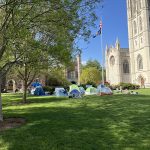
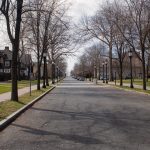



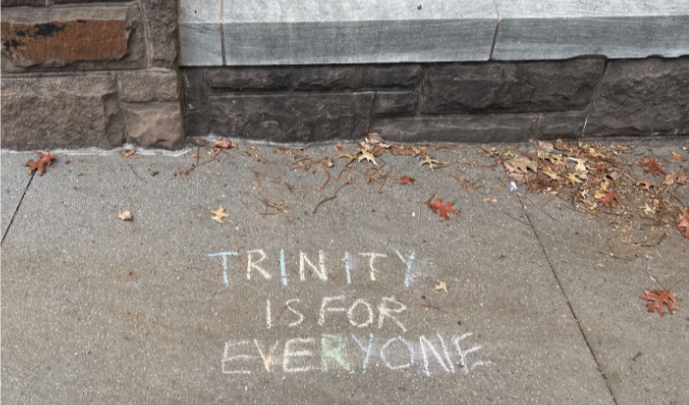
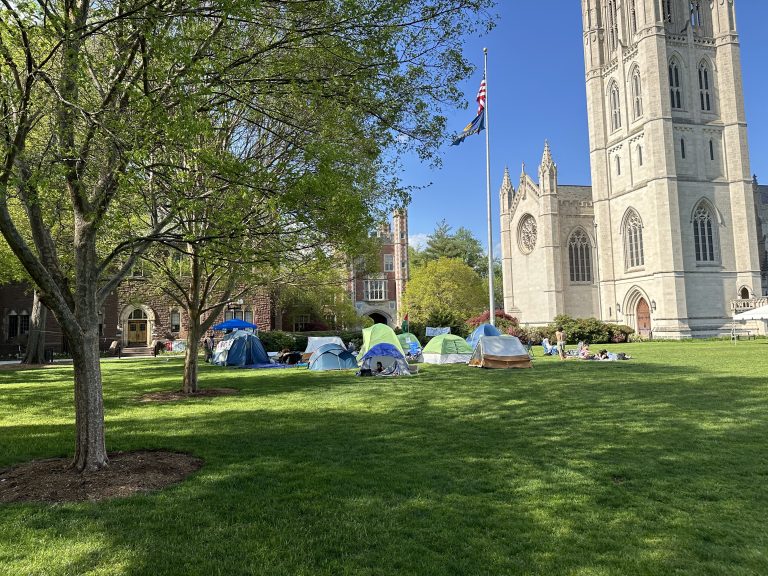
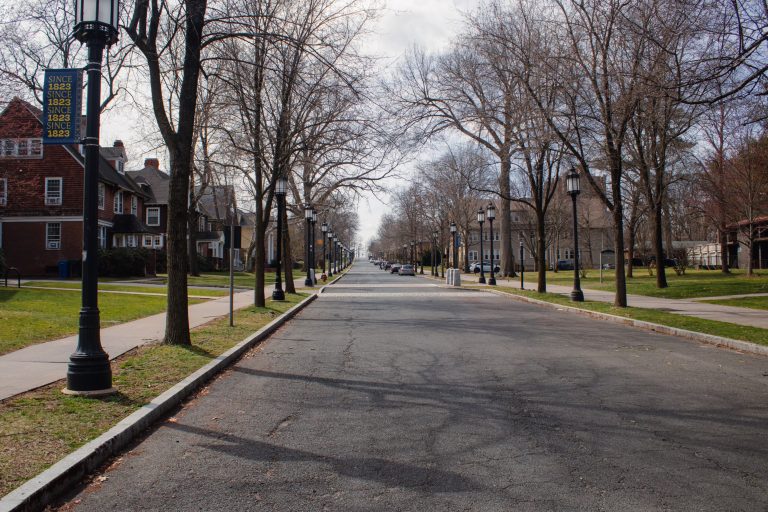

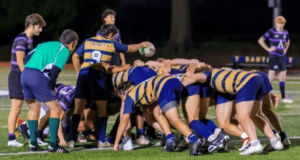
[…] Throughout the past year, conversations about anti-ableism and accessibility on Trinity’s campus have become increasingly prominent across all sectors of the college community, including administration, faculty and students. In the fall of 2022, two student organizations, Students for Accessibility and the Disability Cultural Center, officially formed and became part of the Bantam Link network. Read more… […]